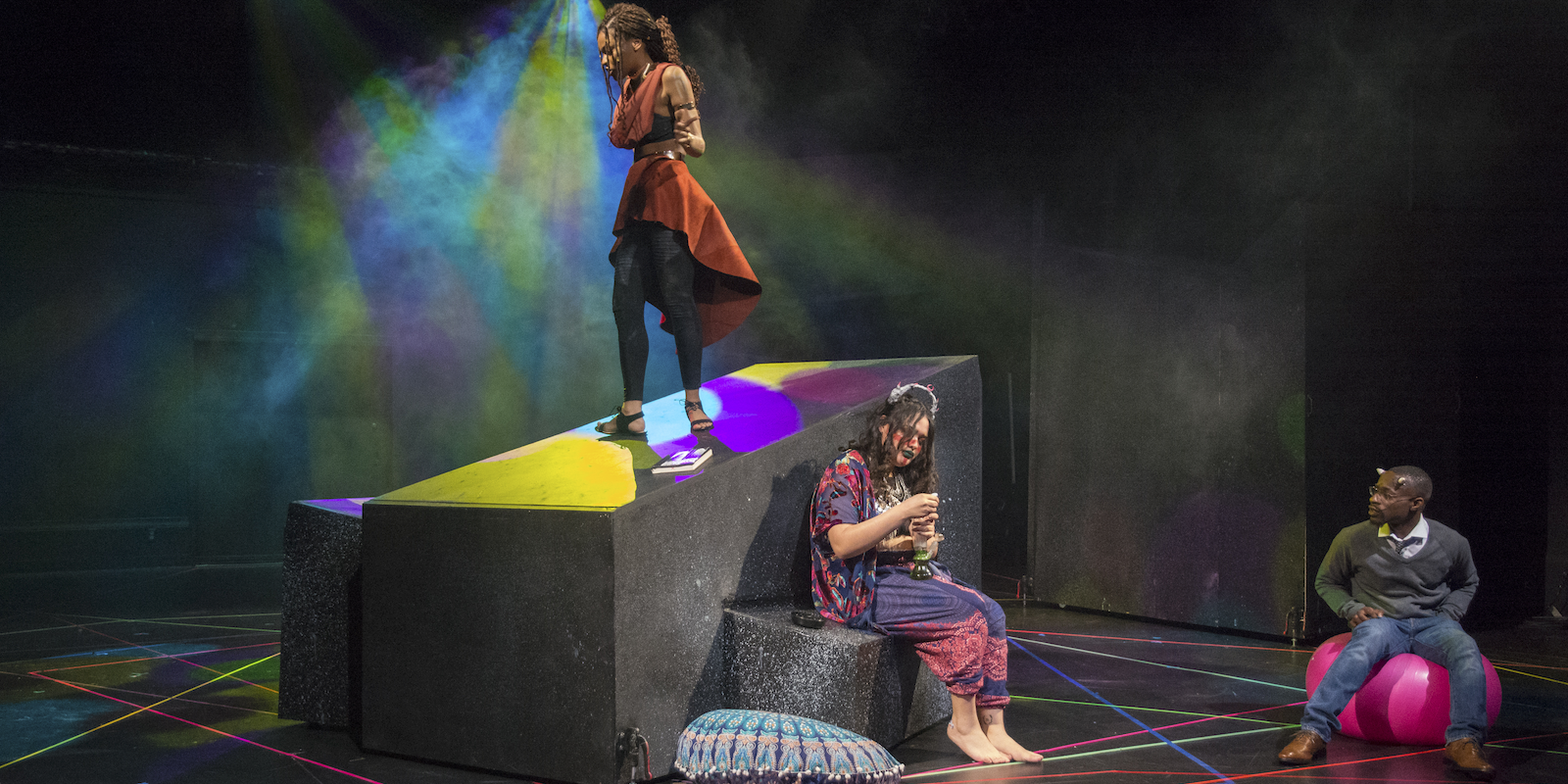
Natalie Robin, Program Director
nrobin@uarts.edu
215.717.6426
C O N T E N T S
Description
The Bachelor of Fine Arts in Theater Design & Technology provides education and broad training in a range of theatrical design and technical areas followed by more concentrated study and practical work in chosen areas of focus.
Students begin with the school-wide foundation of survey of theater, theater history, and script analysis and then are immersed in courses of collaborative conceptual study. The program combines a wide scope of design courses with classes in collaboration, dramaturgy, and specific crafts taught by professionals in their fields.
Students select three disciplines from each of the core areas: set design, costume design, lighting design, sound design, projection design, and technical direction, and then choose two or more of these areas as a focus. Students take a total of 6 semesters of design studio classes which overlap with 6 semesters of production and 2 semesters of professional theater internships.
Studio work is complemented with extensive hands-on experience as designers, assistants, and technicians on a variety of productions in the Brind School season. Students frequently work alongside faculty and guest professional artists on productions. Students completing this program are prepared to enter the theater industry or to pursue further studies at the graduate level. Graduates have gone on to work professionally in Philadelphia and New York, as well as regionally and internationally.
Learning Objectives
In addition to the Learning Outcomes of the School of Theater Arts, Ira Brind, Theater Design & Technology graduates will be able to:
- Effectively analyze scripts and source material, apply research, and make specific choices about world building that serve both the needs of the script and the artist’s imaginative impulse.
- Develop their ideas into realized theater projects through collaboration, exploration, and communication and effectively convey their vision to their collaborators.
- Employ practical skills, exhibit stagecraft and possess the technical experience to support their own design decisions.
- Relate their creative voices to current and historical design paradigms and practices.
Program Requirements (120 credits)